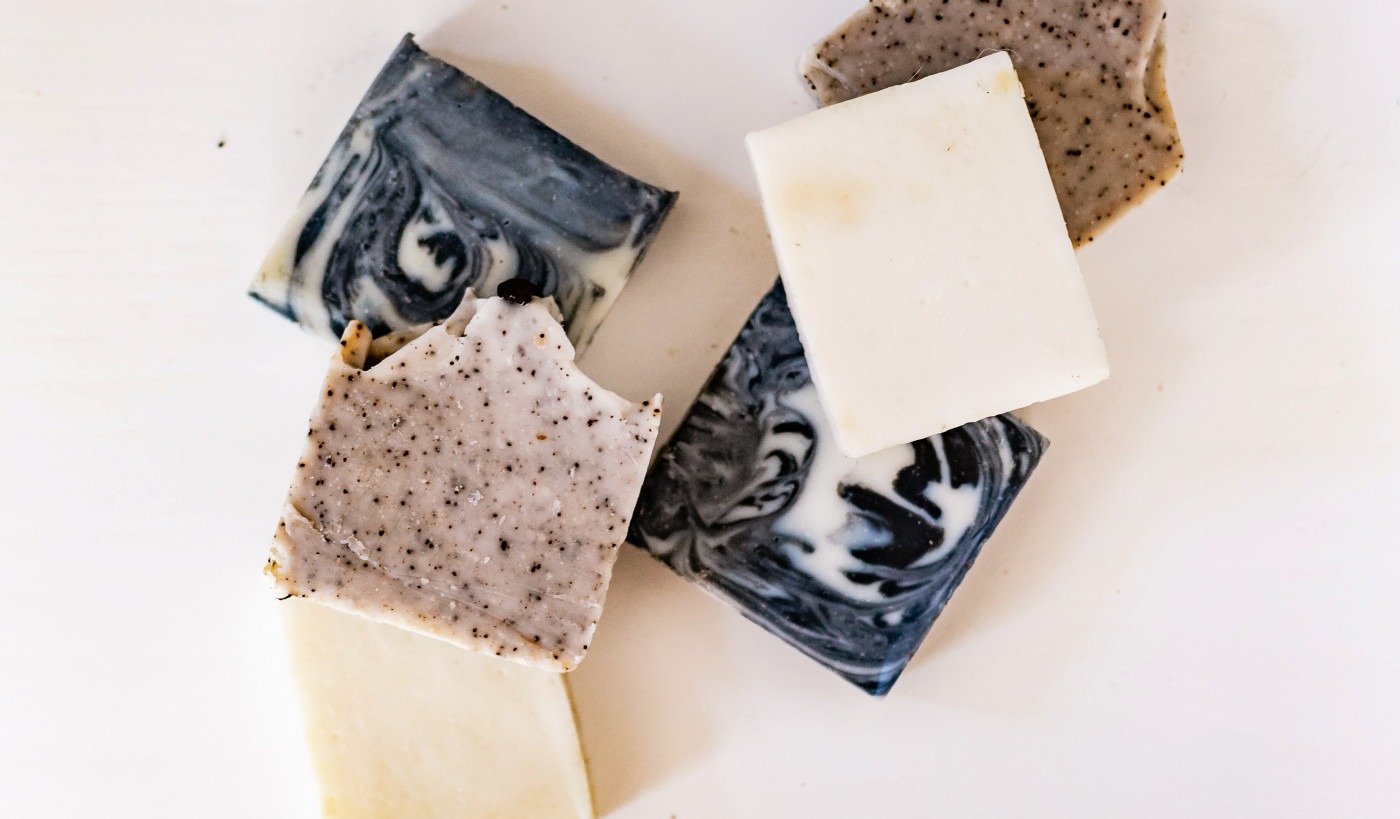Replace your shampoo bottle with a shampoo bar
Buying a shampoo bottle is a common monthly purchase. However, the damage it does to the environment tends to not be discussed.
If you use 1 bottle of shampoo per month, per person, from the age of 18 – 80, you would be using a total of 744 plastic bottles just on shampoo alone. According to a report, 520 million empty shampoo bottles are thrown out every year in the UK. A single plastic bottle can take about 450 years to decompose and throughout this process, it breaks down into microplastic particles and infiltrates waterways, polluting our oceans and wildlife. Therefore, changing from shampoo bottles to shampoo bars can cause a huge impact on the environment.
A lorry full of shampoo bars holds roughly the same amount of washes as 15 lorries carrying liquid shampoo bottles.
Shampoo bars are solid shampoos that look and work like soap. To use one, simply wet the bar and lather it into your hair. Shampoo bars also come in many varieties for different hair types, including coloured or damaged hair, therefore it is equally as good an alternative as bottled shampoo. The major difference between shampoo bottles and shampoo bars is that they cut out the need for plastic bottles altogether.
According to Johnson & Johnson, 552 million shampoo bottles end up in landfills in the United States alone each year, which is enough to fill 1,164 football pitches. In addition, about nine million tons of plastic get thrown into the ocean annually, which breaks down to one garbage truck full of plastic being dumped into the sea, every minute. A significant benefit of shampoo bars is that they come with zero-waste packaging, or at the very least, come in FSC-certified paper boxes, which are completely biodegradable, therefore massively reducing plastic waste and pollution.
Many standard shampoo bottles can contain over 20 potential animal-derived chemicals and microbeads. One example is keratin which comes from the hair and horns of animals.The ingredients in shampoo bars are less refined and treated than those in a standard bottle. They are mostly all-natural, chemical-free, palm-oil-free, and plastic-free. Additionally, the ingredients contained are vegan and are not tested on animals. Therefore, there is also less intensive manufacturing involved both in the product and the packaging.
520 million empty shampoo bottles are thrown out every year in the UK.
Shampoo bars have a lower carbon footprint to ship than their liquid counterparts, this is because they are more light-weight and compact than bottled shampoo, so they require less space during transport. A 2.5-ounce bar does the work of at least two 300 ml shampoo bottles. A lorry full of shampoo bars holds roughly the same amount of washes as 15 lorries carrying liquid shampoo bottles, massively reducing carbon emissions spent in transportation. Once shampoo bars are finished, they do not need to be discarded, thus lowering one’s carbon footprint.
The average bottled shampoo lasts about 25-35 washes and 80% of the actual product is water. However, shampoo bars last up to 80 washes and are far more concentrated, thus, they need a lot less water. As shampoo bars last for a longer amount of washes, it is also a cheaper alternative as you spend less on shampoo products because of this. On average, a shampoo bar will outlast two to three bottles of liquid shampoo.
If you use 1 bottle of shampoo per month, per person, from the age of 18 – 80, you would be using a total of 744 plastic bottles just on shampoo alone.
Shampoo bars have become widely available and accessible. You can buy it from your local Boots, Tesco, Waitrose, Aldi, Sainsbury, Holland and Barrett and more, so it is an easy switch.The most well-known and recommended shampoo bars are Eco-warrior, Ethique, Garnier ultimate blends, Faith in nature and weDo. They are all vegan and mostly palm oil free.
Switching from shampoo bottles to shampoo bars will make a huge difference not only in terms of cost but to the environment. The fact that the ingredients contained are vegan as well as palm-oil free, reduces the increase of deforestation and habitat degradation. It also reduces water consumption and waste, as less water is needed for shampoo bars. However, the most significant benefit of shampoo bars is that it massively decreases the consumption and discard of plastic bottles, which is an ongoing, prevalent environmental problem. Not only have shampoo bars become more accessible, but there are also now conditioner bars available.
Making this switch is quick, easy and simple, so why not start now?

Comments